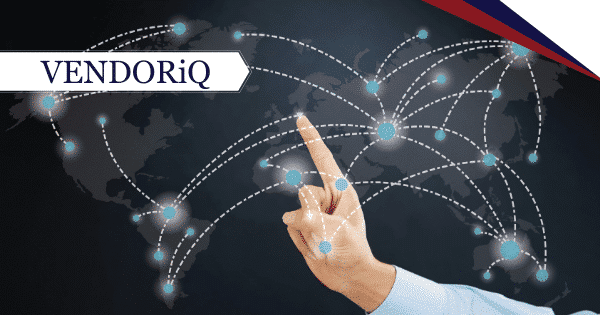Overview of the Company
ToothFairyAI was created in early 2020 to reduce the entry barrier to AI in terms of language and technology. The team set out to build their platform from the ground up without any external investment. It operates in Australia and New Zealand, with its headquarters in Melbourne.
The first product, the ToothFairyAI platform, was launched in May 2023. This product aims to automate the analysis of documents (websites, writing, conversations, etc.) and data from any API endpoint and database for use in generating AI applications that demand high degrees of accuracy and sensitivity. For example, for providing citizens with detailed, in-context information on local government services.
Some of the platform’s features include:
- AI Agents: according to ToothFairyAI, these virtual employees can be configured to meet business requirements for a variety of tasks such as conversations, data analysis, content creation, and business intelligence operations specific to the organisation’s data.
- Knowledge Hub: centralised knowledge base storage to create a map of all the digital information accessible to the AI Agents. It supports most common file formats such as PDF and Excel in multiple languages.
- Website Binding: the platform can automate data scraping applicable to all the domains owned by the organisation. This speeds up the conversion of data available on a website into AI agents’ knowledge.
- Integration Functions: the platform can enhance the AI agents’ knowledge with live data coming from API and databases, allowing a deeper integration with customer relationship management (CRM), enterprise resource planning (ERP), and other digital systems across the organisation.
- Data Ownership: none of the data stored is used by ToothFairyAI to train new AI models. The entire data architecture resides in Australia, making the platform fully compliant with Australian data sovereignty regulations. Enterprise customers can host the entire platform on-prem guaranteeing absolute security.
- User Friendly: no setup is required to use the tool. Users would have to upload documents, link their website and then choose to run reports, create content, or chat with customers using any of the languages supported by the platform.
- Analyse Images: the tool can reference images inside the documentation uploaded to the platform to provide a better multimodal experience.
- Charts and Graphs: the platform allows the generation of dynamic charts and graphs (e.g. mindmaps and flowcharts) to further extend its multimodal capabilities.
The ToothFairyAI platform also has a helpful ‘end-to-end testing approach’ to artificial intelligence for IT operations (AIOps). Unlike many competitive products IBRS has reviewed, ToothFairyAI allows customers to implement AI workflows in a secure environment managing all the necessary components. Few other services provide the breadth and depth of AIOps in a self-hosted environment. Omniscien would be one of the other exceptions.
Customer Profile
ToothFairyAI has seen early success with organisations that want customised generative AI (via RAG) and a rapid proof-of-concept (PoC). ToothFairyAI’s automation of the RAG tuning process and testing framework makes PoCs very fast and low-cost compared to building a custom RAG application on top of Azure, Google, and AWS offerings. Delivering a PoC custom generative AI agent can be deployed in under a day. These PoCs can then be scaled and put into production.
The company’s technology is particularly well-suited for customers where airtight accuracy and security are critical, such as in the defence, mining, government, and insurance industries. It is currently focused on organisations that need self-hosted, scalable AI solutions requiring privacy and full governance of their AI models to comply with privacy laws and regulations. These enterprises can leverage ToothFairyAI hosting to avoid overhead for the customers when adopting the platform through the Base or Pro subscriptions.
Growth Strategy
ToothFairyAI is still in start-up mode with limited internal resources. However, its technology and fast PoC to production approach is gaining traction with local consulting groups. These groups see the potential for ToothFairyAI to accelerate how they deploy custom and secure generative AI to their existing clients, while also avoiding the deep costs of finding highly-skilled AI developers.
ToothFairyAI will face global competition in time. One such product is Afforai, which is quite a long way behind ToothFairyAI regarding generative quality and control. It will also face off against most established vendors for custom generative AI solutions, such as Omniscien. Finally, it must position itself against the generative AI platforms from Microsoft and Google, so more enterprises can self-host the platform without relying on Cloud providers for airtight security.
Disclaimer
IBRS Radar papers are not endorsements. They are part of our commitment to raising the capability of the domestic ICT industry.
The IBRS Radar series provides high-level snapshots of local Australian and Asian technology vendors and service providers. The goal of these snapshots is to raise awareness of local firms that may be overlooked by the large international advisory firms, or that may lack the marketing budget of the industry giants.
IBRS selects these vendors based on their progress within, and relevance to, trends in the Australian and Asian ICT landscape. These snapshots are not paid engagements. In most cases, the organisations selected for IBRS Radar come to IBRS’s attention during conversations with their clients, and during our regular conversations with senior local ICT executives and their teams.
Information presented in these snapshots is gathered through interviews with the vendor’s senior executives, and, when possible, validated by discussions with their clients.
If you wish to explore the relevance of a vendor to your own projects, you can submit an inquiry to IBRS.


